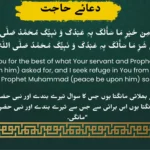The 1st Kalma, also known as Kalima Tayyab, is the cornerstone of Islamic belief. It represents the foundational declaration of faith, embodying the essence of monotheism and submission to Allah. This article explores the complete verse of the 1st Kalma, its Arabic text, and its translations in Urdu and English, along with its spiritual significance.
| Namaz E Tahajjud Ki Dua | Mid Night Prayer |
| Naye Saal Ki Dua for the New Year |
| Nazar Ki Dua- أَعُوذُ بِكلِمَاتِ الله التّامّاتِ مِن شَرّ مَا خَلَقَ |
| Iqra Bismi Rabbika Lazi Khalak- Surah Al Alaq |
The Complete Verse of the 1st kalma translation
Arabic Text:
لا إِلَهَ إِلَّا اللهُ مُحَمَّدٌ رَسُولُ اللهِ
Transliteration: La ilaha illallah Muhammadur Rasulullah
English Translation: “There is no deity but Allah; Muhammad is the Messenger of Allah.”
Urdu Translation:
اللِه کے سوائے کوئی معبود نہیں، محمد (ص) اللِه کے رسول ہیں،

Significance of the 1st kalma translation
The Kalima Tayyaba forms the very heart of Islamic teachings, encapsulating the concept of Tawheed (the oneness of Allah) and the acknowledgment of Prophethood. Below, we delve into its core elements:
1. Declaration of Unity of God (Tawheed)
The phrase “La ilaha illallah” emphasizes that there is no deity worthy of worship except Allah. This declaration aligns with the central principle of monotheism, urging believers to detach from polytheism and false deities.
2. Recognition of Prophethood
The words “Muhammadur Rasulullah” affirm Prophet Muhammad (†PBUH†) as Allah’s final messenger. It highlights his pivotal role in delivering Allah’s message and guiding humanity toward righteousness.
Spiritual and Practical Importance
1. Foundation of Faith
The 1st Kalma is the gateway to embracing Islam. It is recited when one declares their faith and becomes a Muslim. This act represents the believer’s commitment to living according to Allah’s commands.
2. Daily Affirmation
Muslims are encouraged to recite the 1st Kalma regularly, as it strengthens their bond with Allah and renews their faith. It is a constant reminder of submission, gratitude, and devotion.
3. Ultimate Pillar of Salvation
The Kalima Tayyaba is not only a phrase but a profound statement that holds the key to eternal salvation in Islam. The Prophet Muhammad (PBUH) stated, “Whoever says ‘La ilaha illallah Muhammadur Rasulullah’ with sincerity will enter Paradise.”
Understanding the Kalima Tayyaba: The Foundation of Islam
- Kalima Tayyaba: The pure and holy statement.
- Pillars of Islam: The foundation of Islamic belief and practice.
- Declaration of Monotheism: Affirming Allah’s oneness and supremacy.
FAQs
The 1st Kalma means, “There is no deity but Allah; Muhammad is the Messenger of Allah.” It signifies the oneness of Allah and the acceptance of Prophet Muhammad (PBUH) as His final messenger.
The 1st Kalma is called Kalima Tayyaba because it is a pure declaration of faith, symbolizing the essence of Islamic belief in its most refined form.
Muslims are encouraged to recite the 1st Kalma regularly in their daily prayers, during moments of reflection, and as a way to strengthen their faith and connection with Allah.
Conclusion
The 1st kalma translation, or Kalima Tayyaba, is more than a verbal statement; it is a profound declaration of faith, embodying the principles of monotheism and prophethood. By understanding and reflecting on its meaning, Muslims can reinforce their commitment to Allah and live a life rooted in devotion and righteousness. Recite it with sincerity and let its essence guide your spiritual journey.





I’m really inspired with your writing skills as neatly
as with the structure for your weblog. Is that this a paid subject matter or did you modify it your self?
Either way keep up the excellent quality writing, it is uncommon to
peer a great blog like this one nowadays. Snipfeed!